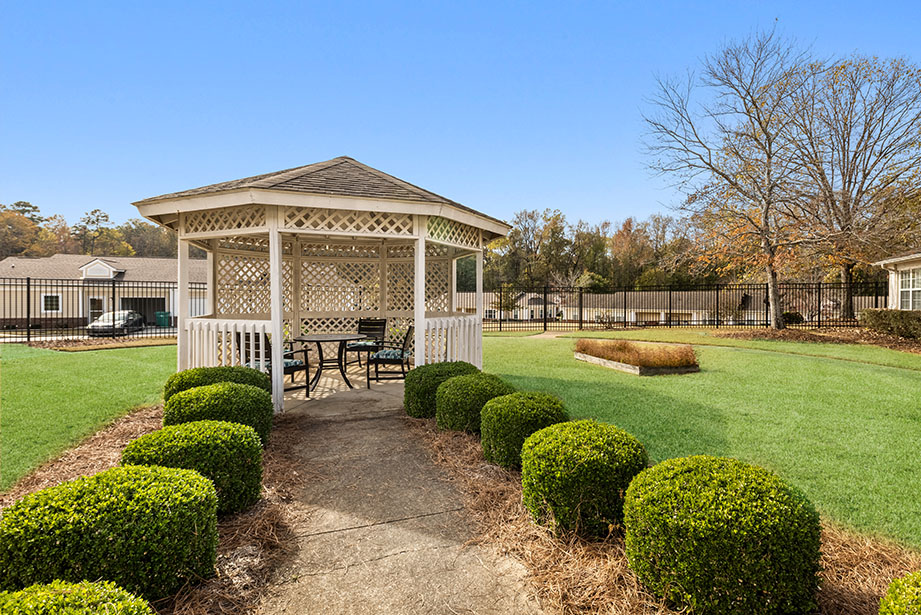Key Takeaways
- Assisted living communities can provide general support for daily activities, but are not equipped to handle the complexities of dementia care.
- Memory care communities specialize in dementia-focused care, offering trained staff, structured routines, and secure environments tailored to enhance safety and quality of life.
Living in Assisted Living with Dementia: Is It Possible?
Deciding on the right long-term care for a loved one with dementia is never easy. While assisted living communities provide support for daily activities, they lack the specialized care needed for people with dementia.
Memory care communities, on the other hand, are designed to address the unique challenges of dementia, offering structured routines, trained staff, and a safe environment.
How Does Dementia Progress?
Dementia affects people in different ways, but it typically progresses through 3 main stages. Understanding these stages can help families prepare and provide the proper support as needs evolve.
- Early Stage: Mild memory lapses and occasional confusion are common, but people can often remain independent with minimal support.
- Moderate Stage: Cognitive changes become more noticeable, including difficulty with daily tasks and increased disorientation.
- Advanced Stage: People require full assistance with most daily activities as cognitive and physical abilities decline.
Each person’s experience with dementia is unique, and progression varies widely. Recognizing the stages can help families anticipate challenges and plan for the care their loved ones may need.
Why Is Assisted Living Unsuitable for Seniors with Dementia?
Finding the right care environment for a loved one with dementia can be challenging, especially when considering assisted living communities. While these communities support seniors with daily activities and promote independence, they often fall short in meeting the complex needs of people with moderate to advanced dementia.
- Lack of Specialized Staff Training: Many assisted living communities lack staff trained to manage the unique behavioral, emotional, and physical challenges of dementia, such as aggression, confusion, or anxiety.
- Inadequate Safety Measures: Communities may lack essential security features, such as locked doors or alarm systems, to prevent wandering, a common and potentially dangerous behavior among people with dementia.
- Limited Support for Advanced Care Needs: As dementia progresses, people often need more intensive care and supervision than standard assisted living communities can provide, leading to disruptive transitions to memory care or nursing homes.
Planning is crucial when selecting a care environment for someone with dementia. Considering future needs can help ensure your loved one receives the compassionate and appropriate care they deserve.
How Do You Find the Right Support in Memory Care?

Memory care communities are dedicated to supporting people with dementia or cognitive impairments, offering specialized care in a secure and nurturing environment. Here’s what makes these communities unique:
- Secure and Safe Environments: Thoughtfully designed layouts with controlled access points prevent wandering and reduce anxiety, featuring calming spaces and visual cues for more straightforward navigation.
- Specialized Staff Training: Our staff members receive comprehensive training in effective communication, behavioral management, and person-centered care, enabling them to meet the unique needs of each resident.
- Therapeutic Activities: These communities provide activities designed to stimulate cognitive function and improve overall well-being.
- Family Support: Families benefit from resources such as support groups, educational programs, and personalized guidance to help them navigate the challenges of caring for those with dementia.
Memory care communities strive to provide comfort and dignity for residents, while offering families peace of mind and support throughout the journey.
How Do You Know When It’s Time for Memory Care?
Deciding when memory care is needed can be challenging, but understanding the signs can help you make the right choice for your loved one. Here are some key indicators to watch for:
- Safety Concerns: Wandering, difficulty managing medications, or confusion in familiar environments are major red flags.
- Staff Concerns: If assisted living staff express difficulty providing adequate supervision, it may be time to explore specialized care.
- Decline in Personal Hygiene: Changes in grooming or self-care habits can indicate a need for additional support.
- Behavioral Changes: Increased agitation, anxiety, or frustration in their current surroundings can point to the need for a structured care environment.
- Social Isolation: When loneliness begins to impact mental and physical well-being, memory care can provide opportunities for meaningful interaction.
While the timing depends on each person, taking proactive steps—rather than waiting for a crisis—often leads to better outcomes for everyone involved.
Finding Memory Care Support at Summer Village
Making care decisions for a loved one with dementia means prioritizing safety, comfort, and quality of life at every stage.
At Summer Village Senior Living, we understand the unique needs of people with dementia, offering both assisted living for early stages and specialized memory care as needs evolve. Our community provides compassionate, professional care, engaging activities, and a supportive environment that respects the dignity and individuality of each resident.
Contact us today to schedule a visit and see how our community’s focus on creating moments of joy and purpose can support your loved one during all stages of dementia.









